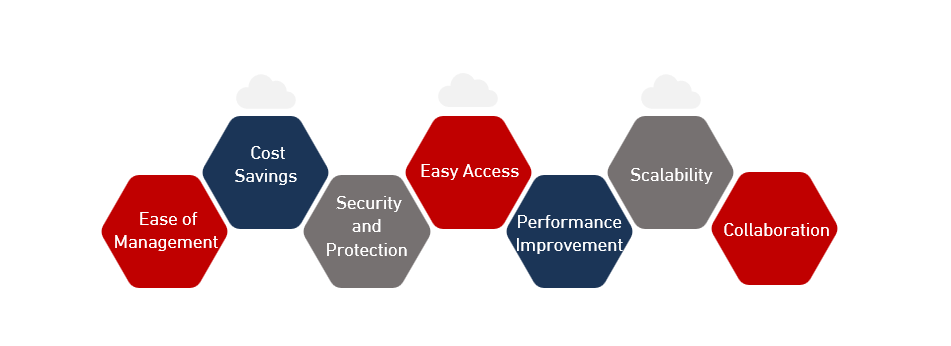Cloud Computing
Cloud computing is one of the most significant technological advancements of our modern era, revolutionizing the way we manage information and data. This technology relies on delivering computing resources—such as servers, databases, and applications—over the internet instead of depending on local devices. Cloud computing provides a high level of efficiency and flexibility, helping organizations accelerate their operations, foster innovation, and better align with rapidly changing market demands. It also enables access to data and services anytime and from anywhere, making it a strategic choice for organizations seeking technical excellence and sustainability.

Types of Cloud Computing
- Public Cloud:
Managed by external service providers like AWS and Microsoft Azure, public clouds offer shared resources for multiple users, making them ideal for cost reduction and scalability. - Private Cloud:
Dedicated to a single organization, private clouds provide a high level of control and security, making them suitable for entities dealing with highly sensitive data. - Hybrid Cloud:
Combines public and private cloud environments, allowing organizations to benefit from flexibility and scalability while maintaining strong control over critical data.
Benefits of Cloud Computing
- Flexibility: The ability to scale IT resources up or down as needed.
- Cost Reduction: The pay-as-you-go model reduces capital and operational burdens.
- Easy Access: he ability to access services and data from anywhere at any time.
- Scalability: Supports organizational growth without the need to rebuild the infrastructure.
- Speed to Market: Speed to Enables entities to deploy their digital services quickly and efficiently.
Challenges of Cloud Computing
- Security and Privacy:
While advanced security solutions are available, protecting data in the cloud environment requires a shared responsibility between the provider and the user. - Dependency on Internet Connectivity:
Access to cloud resources depends on a stable network connection, making internet quality a critical factor. - Integration with Legacy Systems:
Some organizations face challenges in integrating cloud infrastructure with their traditional systems, requiring careful planning and well-executed integration efforts.
Tahawul Company’s Contribution to Cloud Computing
Tahawul is a leading entity in empowering both the public and private sectors to maximize the benefits of cloud computing within the Kingdom. The company supports cloud transformation through:
- Providing cloud-based digital platforms that help entities accelerate operations and achieve operational efficiency.
- Designing and implementing customized cloud solutions tailored to each entity's actual needs, while ensuring compliance with national regulations and standards.
- Contributing to the development of a national cloud infrastructure that considers digital sovereignty and data hosting within the Kingdom.
- Enabling organizations to transition securely to cloud environments by offering specialized consultations, well-planned migration strategies, and continuous technical support.
- Supporting technological innovation by integrating cloud services with advanced technologies such as artificial intelligence and big data analytics.
Through these initiatives, Tahawul reaffirms its commitment to accelerating digital transformation in the Kingdom and enhancing the readiness of various sectors to leverage the potential of cloud computing in alignment with the goals of Saudi Vision 2030.
